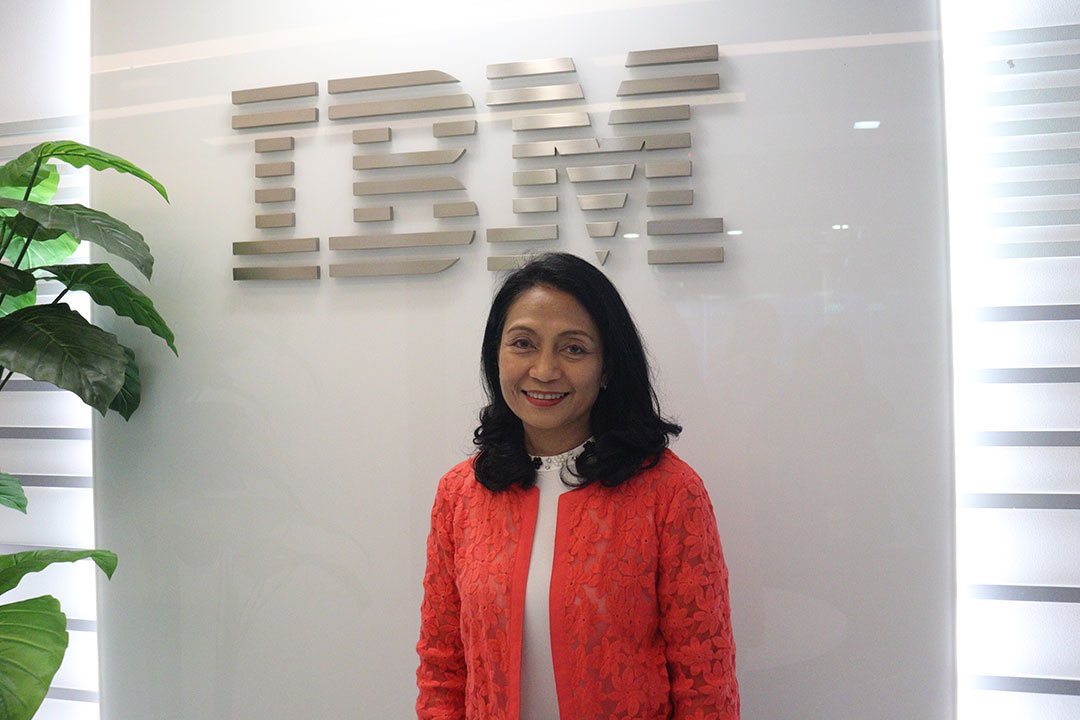
By Aubrey Rose A. Inosante, Reporter
PHILIPPINE COMPANIES need reliable artificial intelligence (AI) models to address rising copyright and ethical issues, making AI governance essential to ensure tools remain safe and ethical, according to Aileen Judan-Jiao, president and country general manager of IBM Philippines.
“It’s the responsible use of AI. It needs to be trustworthy. If AI gives you insight, you need to know the source,” Ms. Jiao said in an interview with BusinessWorld.
She said this concern was raised because the licensing of open-source AI models often lacks clarity regarding how these models were trained and how the data was cleaned and filtered for hate, abuse, and profanity.
“We have open-sourced our AI models. It’s named Granite. We have published where we trained the model,” Ms. Jiao said.
In May, IBM open-sourced Granite, a family of AI models purpose-built for business. These models can perform text summarization and content generation tasks. Before training the model, it searches for and removes duplication, employs URL blocklists, and filters for “objectionable” content and document quality. It also uses sentence splitting and tokenization techniques. IBM has an AI Ethics Board as well.
Ms. Jiao added that using public data for private and commercial use could violate intellectual property rights and profit off content produced by generative AI.
“This is why we say governance in AI is so important. That’s a core mission of our platform for watsonx. That is the area for AI governance,” she said.
“There are very good possibilities for AI. It does not come without risk, just like any technology, but there are key ways to mitigate those risks,” she said, noting that bias, such as gender bias, may occur in any AI model.
Instead, she advised being aware, doing due diligence on why to trust AI, and refraining from selling AI-generated content with privacy tags. She said if someone is developing AI models for larger businesses, “we say, don’t just be an AI user; be an AI value creator.”
“AI must be solving a problem. Be clear on what problem you want to solve that will really drive value for you so that you don’t run into issues like, ‘it will replace this person.’ Then you’re just automating for the sake of automating,” she added.
Her outlook remains that AI will be part of the upscaling process. “You may not like it today, just like the pandemic, but it will be everywhere. Trust that IBM will be at the forefront. We will continue to upscale, re-skill, and provide new roles for us,” she said.
MORE WOMEN IN TECH
Ms. Jiao was the first homegrown Filipina president and country general manager of IBM, having risen through the ranks from a systems engineer in 1992 at IBM Philippines.
She also said that her first tech job, supporting laser printers for a multinational tech company, came after graduating with a Computer Science degree from Ateneo de Manila University.
“It was quite an unusual role for women in technical positions to rise all the way up because, apparently, you stay and become a developer…,” she said.
Apart from being part of the board of trustees for the Philippines Business for Social Progress and Philippine Business for Education, Ms. Jiao also chairs the Makati Business Club’s Women-in-C-suite committee and is a member of the Filipina Chief Executive Officer circle.
She said, among its goals is to give exposure to those women who don’t have a nurturing environment like IBM, don’t have the policies, and are unaware of how to start.
“Diversity and inclusion are very close to IBM’s heart, and they are for me as well,” she said, noting she became a “testament” to taking unconventional paths where tech and high executive jobs are mostly offered to men.
Heading IBM, an international company where executive-level positions are often presumed to be filled by foreign nationals, earned her the overriding comment from employees that it can be done after her promotion to the top job.
Over 60% of senior leaders in IBM Philippines across different functions are women, she said. However, she noted that IBM does not hire for the sake of diversity metrics, but based on skills and credentials.
She said that while the challenge of work-life balance for women in the technology industry is in the past, the current challenge lies in ensuring that a hybrid work environment achieves the same business outcomes.
IBM facilitates mentorship that is not bound by geography; Ms. Jiao currently mentors an employee in China. It also encourages its workers, as a minimum, to learn about hybrid cloud and AI strategies, regardless of their role.
“You can learn different domains, different industries, different technologies, and different levels. Earn your own certifications if you want to, on your own time. It’s all about your learning,” she said.
Pushing for more inclusion, IBM partnered with various educational institutions, offering free online courses for thousands of learners. In February, the Department of Labor and Employment announced that it signed a partnership with IBM in 2023 to offer beneficiaries the SkillsBuild platform, focusing on customer support, data analysis, and other high-demand skills required in the digital economy.
“It has to be a responsible use of AI, but you need it starting before they graduate and also now post-graduate. I’ve done a lot of this series together with the team and then some of the leaders, and it’s very close to AI, so adult learners,” she said.



